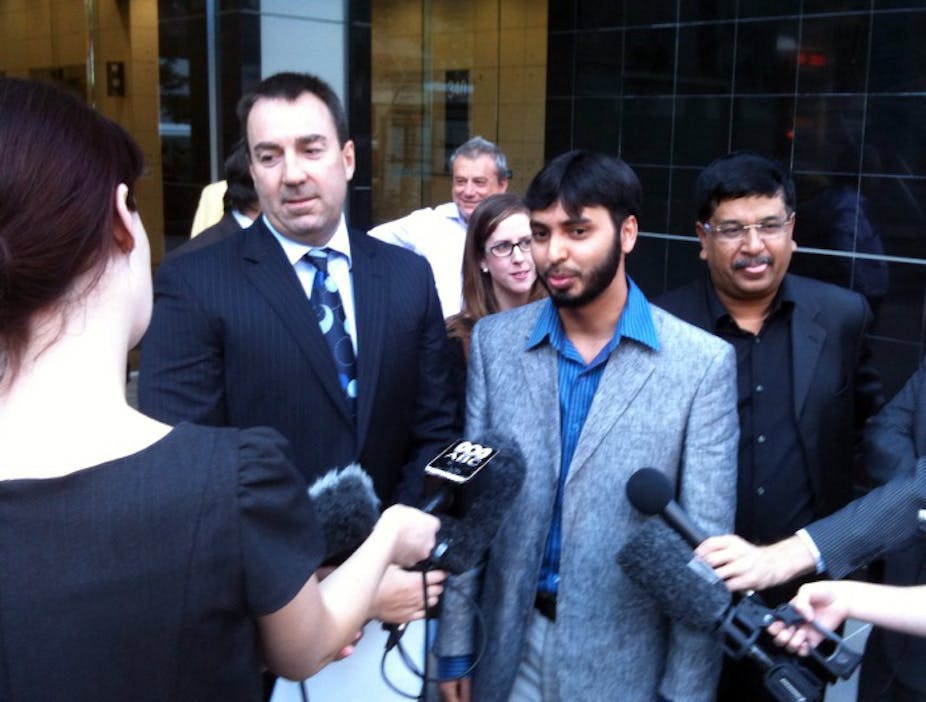The third annual report of the Independent National Security Legislation Monitor, Bret Walker QC, was tabled in federal parliament last Thursday. Unlike the previous two reports, there was no press release, no publicity and little media attention.
The publication of this report took many by surprise. It is much earlier than the two previous reports, the last of which was only tabled in May this year.
Former prime minister Julia Gillard was accused of seeking to bury the second report by publishing it on budget day – when it was least likely to receive any substantive interest. That report had recommended repeal of the control order and preventative detention order regimes, and the ASIO questioning and detention powers.
The Coalition government appears to be adopting the same tactic, hoping that if it just remains quiet enough, the festive period might distract attention from the monitor’s report.
That would be a shame. The report’s recommendations are well-researched, well-reasoned and based on the same evidence that is available to the government.
The monitor’s proposed reforms are not all one-sided. In some cases he has recommended repeal. In others he has proposed adjustments to improve the operation and effectiveness of the laws. But he has also accepted that, in general, the vast majority of Australia’s anti-terrorism laws are effective, necessary and proportionate to the threat of terrorism or national security.
And yet, despite this, both the former Labor government and the current Coalition government appear to be taking every opportunity to ignore the legislative watchdog’s recommendations. In his most recent report, the monitor has pointed out in frustration that:
…there has been no apparent response to any of the twenty-one recommendations made on 20th December 2012.
This is not the only evidence to suggest that the monitor has been sidelined. Both the Labor and Coalition governments have also waited until the latest possible moment to table the monitor’s reports in parliament.
The government is obliged, under the terms of the legislation that governs the office of the independent monitor, to table the report on the 15th sitting day of parliament after receipt. Gillard waited until this deadline to table the monitor’s first two reports.
Prime minister Tony Abbott received this year’s report on November 7. According to the parliamentary calendar, last Thursday was the deadline for its publication.
This all seems to suggest that the government is treating the office of independent monitor as a simple box-ticking exercise. It looks good to have an independent watchdog to review the state’s national security and anti-terrorism laws.
It is no use to anyone, however, if those reviews fail to bring about any meaningful change - not to those who come into contact with Australia’s anti-terrorism laws and least of all to the person appointed as the next independent monitor.
The monitor is appointed for a three-year term, renewable only once under the terms of the legislation. Walker was appointed in April 2011. He appears to suggest in this report that he will not be taking on a second term. Whether that is his decision or the government’s is unknown. But the lack of a government response to his reports so far undermines any future review.
Walker was a high-profile inaugural independent monitor. It is unlikely that someone of the same high calibre will be willing to accept a position that has so far had little or no impact on the government’s counter-terrorism policy agenda.
In legislating for an independent monitor, the federal parliament acknowledged the potentially troubling nature of some of Australia’s anti-terrorism laws. In appointing Bret Walker, the government acknowledged that such a role required a person of authority and substance.
By ignoring his recommendations, successive governments have snubbed Walker and undermined the office of Independent National Security Legislation Monitor – perhaps irreparably.

